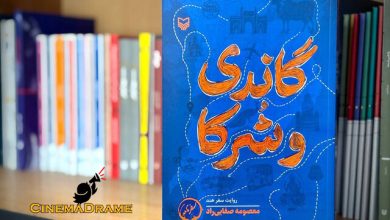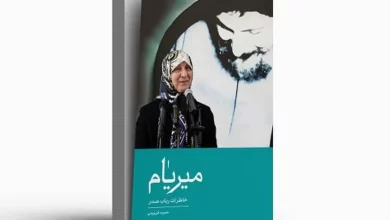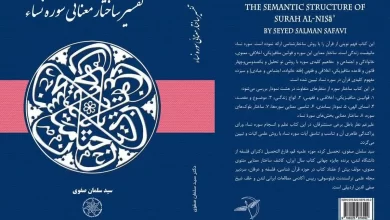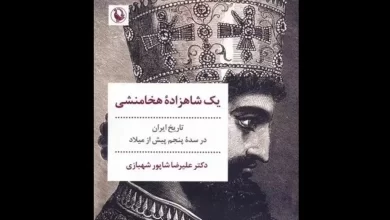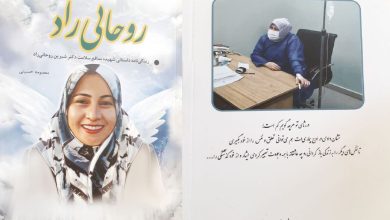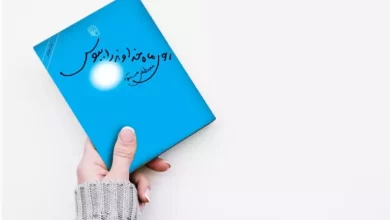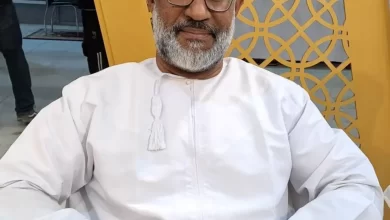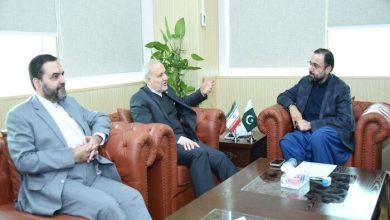Introducing the First Awardee of the Youth Literature Translator Award / Veteran Translator Razi Hirmandi Deserves “Joman” Emblem
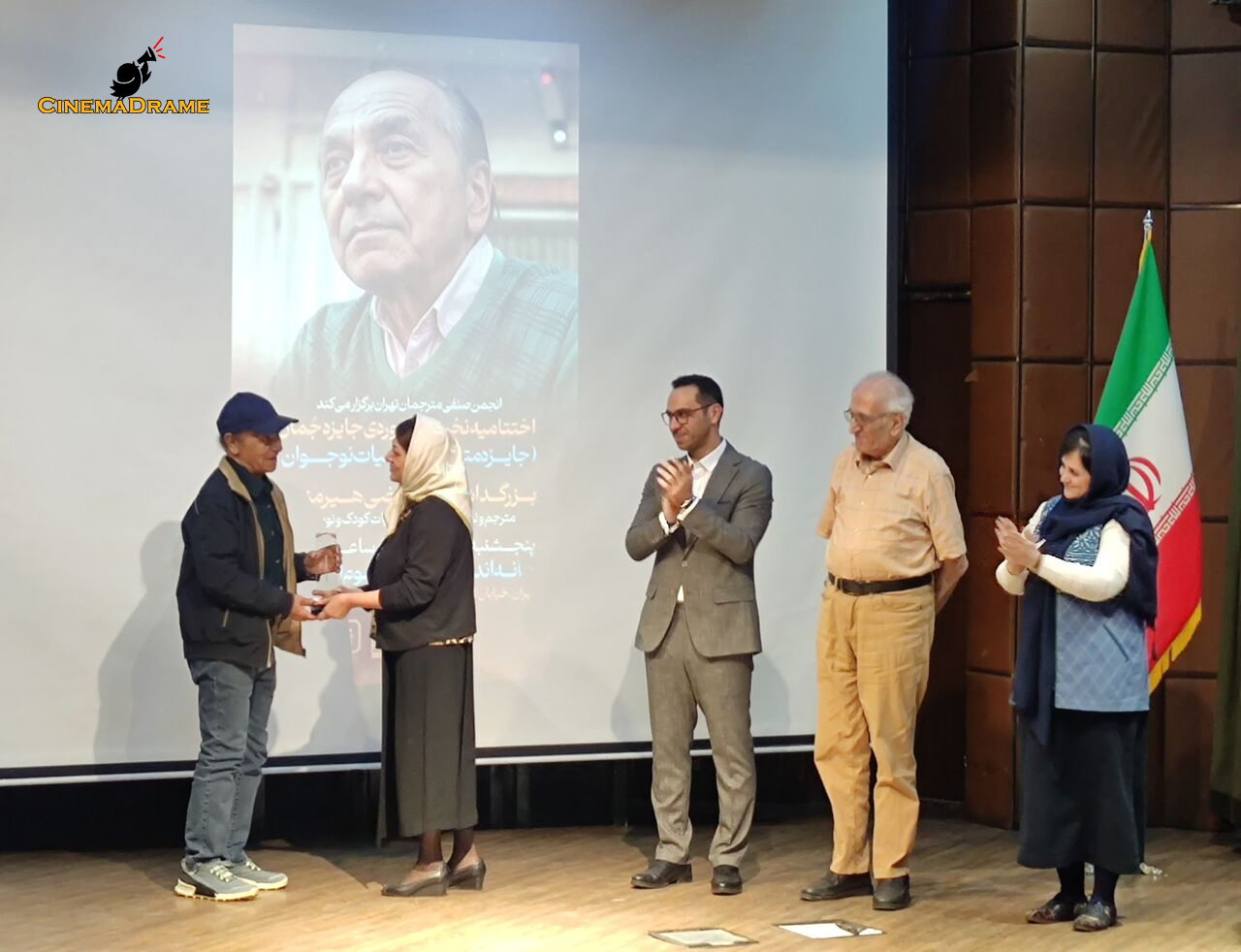
According to the Cinemadrame News Agency, the jury of this award, in its first round, did not deem any translator worthy of the “Joman” Emblem. However, in appreciation of Razi Hirmandi‘s years of effort in the field of children’s and young adult literature translation, this emblem was presented to the veteran translator.
Upon receiving the trophy, Hirmandi expressed satisfaction with the focus on literature and its challenges, especially translation, saying: “We all know that children’s literature is a fruitful branch of the mighty tree of literature; at least in the last 200 years, since the concept of ‘childhood’ was institutionally introduced in Europe, we have witnessed the growing prominence of literature and translation every day. The important point is that even in the era of machine translation dominance, awards are still being considered for children’s and young adult literature translation, and this is highly valuable.”
He continued: “In European culture, due to the structural and content proximity of languages, the translator’s name is usually not put on the book covers; unlike Iran, where we usually read the translator’s name first, then go to the author and illustrator. But recently, I’ve seen that even in Europe, the translator’s name is being included on inner pages or specified in digital versions, which means translation has found its place in Iran, and I am happy about this.”
Hirmandi added: “If you ask me how I became acquainted with translation, I’ll tell you the secret: without even knowing it, I was familiar with translation since elementary school. It was when I read stories like ‘The Boy Who Cried Wolf,’ ‘The Fox and the Stork,’ or ‘The Fox and the Crow.’ These stories subtly remained in my mind. Later at university, although I wasn’t translating, I realized that these stories had been translations. For example, ‘The Boy Who Cried Wolf’ dates back 2,600 years, and La Fontaine‘s works were written about 450 years ago.”
The translator continued: “From that moment, I told myself: If I ever become a translator, I must translate in such a way that the Persian-speaking reader enjoys it as much as I did when reading those works. These works became my role models. Just as Mohammad Ghazi, with his translation of masterpieces like The Little Prince (Shazdeh Kuchulu), became a role model for his own generation and subsequent generations. I had teachers who themselves had learned from the best.”
Posing the question “Why do I translate?”, Hirmandi answered: “I’ve said it many times: because I can’t bear it! I can’t bear to hold onto the burden of literary pleasure. I love literature passionately, and when I read a work, I become restless to share it with others. This sharing means translation. Like someone who can’t stop laughing or like Archimedes who, upon a great discovery, shouted with joy: ‘Eureka! Eureka!'”
He continued: “The first work I translated was The Giving Tree. When I found this work, I said: ‘Eureka!’ Something that can stay with a person until the end of life. Later, I had the same feeling with the translation of other works as well.”
In response to the question of what he expects from translation, Hirmandi stated: “To be honest, I expect nothing. I believe literature should not necessarily perform political or ideological work; literature, above all, must be enjoyable and help us carry the burden of existence – this burden placed upon our shoulders – more easily to its destination; both individually and collectively. Literature should help our children also be able to carry this burden to its intended goal.”
He said: “The translations I have done, and even the works I have written for children, are like songs to be sung. My dear friend, Asadollah Shaabani, helped me in composing parts of them. In these works, my goal is to create questions, not definitive answers. Why do we think we know everything? Why do we think only we see? Asking questions is important, even if it comes with a cost. Let’s remember that even a simple question can bring about a great transformation.”
Hirmandi concluded: “I cannot fail to mention someone who truly has a great right over me. Someone who, as Saadi said: ‘I cannot avert my gaze from him / My first sight was enlightened by seeing him,’ and that person is none other than Shel Silverstein.”
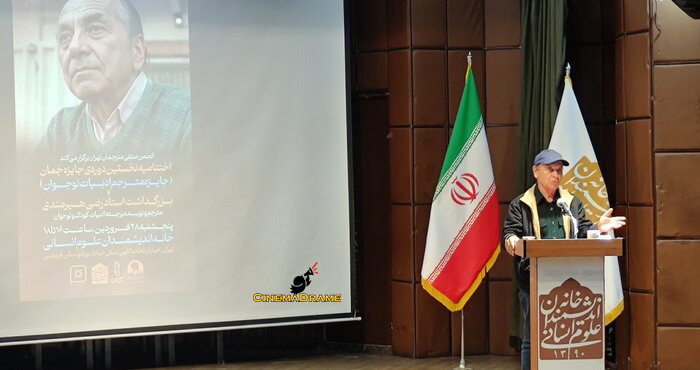
Hirmandi, a Seeker and Hunter Translator
Ali Solhjou, a linguist and editor, said about Razi Hirmandi: “There is no doubt about his prominence as a translator; he is a complete translator in every respect.”
He added: “Perhaps it’s unfair to say that one aspect of Hirmandi’s personality has received less attention; an aspect that, in my opinion and that of many others, is very important: he is a ‘seeker’ and ‘hunter’ in the world of translation, and this is no small feat. In his specialized field, almost no important figure in the world remains whose works Hirmandi has not explored. I emphasize the word ‘seeking’; meaning he himself found and introduced many of these works for the first time.”
Solhjou continued: “In this regard, his work is valuable, especially in a society where knowledgeable and concerned publishers are very few. Publishers who would take the initiative themselves and, for example, suggest in the field of children’s and young adult literature what we lack and what needs to be translated. Hirmandi walked this path alone. He put in the effort himself, he searched himself. For years, I witnessed the diligence and perseverance with which he sought out resources.”
The veteran editor continued: “In translation, there are conditions and criteria that are clear to everyone: mastery of the source and target languages and comprehensive understanding of the subject. Without these, translation remains incomplete. But alongside these, there is another important point; something that is also encompassed within the comprehensive understanding of the subject, but needs to be specifically mentioned: in-depth study of the author, the book, and its surrounding context. Hirmandi was unparalleled in this regard. Before starting a translation, he would study dozens of books and articles about the author and their writing style.”
Solhjou said: “Translation will not succeed without peripheral knowledge. Translation is a ‘love,’ a love for meaning, for culture, for language. Hirmandi is a well-known figure in the world of children’s and young adult literature, but he has still been less recognized in this specific aspect. In addition, his non-fiction translations are also very prominent. For example, he translated a book titled Languages of the World, in which almost no language in the world is left unmentioned, whether major languages or less known ones. He had many conversations with the late Ali Mohammad Hagh Shenas regarding the pronunciation and transcription of languages, and he put in great efforts for precision in his work.”
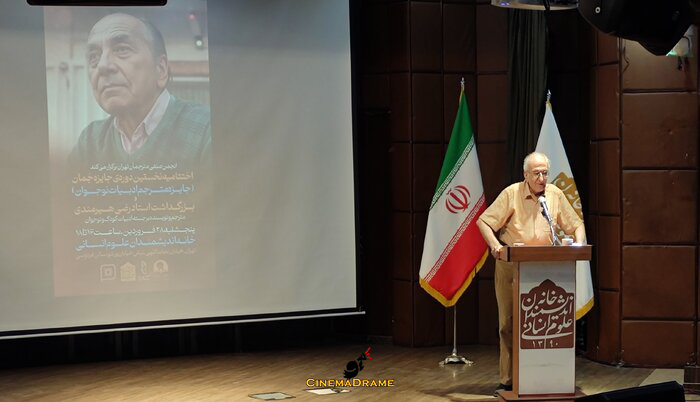
Razi Hirmandi is Unique in Iran
Ahmad Pouria, a translator, shared memories of Razi Hirmandi, saying: “Once I had translated a book by Shel Silverstein. I dedicated the book to him and wrote in the dedication: ‘To the one who introduced Iranian young readers to Shel Silverstein.'”
He continued: “I believe Razi Hirmandi plays a key role in Iranian children’s and young adult literature, and part of this familiarity is owed to his translations.”
He added: “We translators usually consult with each other about certain words. For example, I sometimes call and ask: ‘How would you translate this word?’ Of course, it’s very rare for him to call me, but when he does, a scientific and precise discussion ensues.”
Pouria continued: “What has always fascinated me about Razi Hirmandi’s work is his meticulous precision; he must be convinced himself and have a scientific reason; he accepts nothing lightly.”
He stated that in the field of children’s and young adult literature, Razi Hirmandi is truly unique in our country. “I say with certainty that his presence and works have had a profound and lasting impact.”
At this ceremony, Mohammad Reza Arbabi, Head of the Association of Children’s and Young Adult Literature Translators, criticized previous policies in the field of children’s books and explained the reasons for the award’s establishment.
Mahsa Khorasani, a member of the jury, read the jury’s statement, and Seyedeh Hasti Hosseini, the executive secretary, presented a report.
